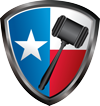
Dino Marcaccio
President
Former Texas Comptroller State Tax Auditor
Texas Comptroller Auditors Are On The Lookout!
If you run a business that takes in a lot of cash (convenience store, restaurant, nightclub, etc.), you might be tempted to buy one of these Zapper programs. Bad idea. Although these programs do a pretty good job of excluding the cash sales from your POS cash register system, an alert Federal or State Auditor can often figure out the scam.
The Texas Comptroller issued a Zapper Issue Brief in 2013
The Issue Brief states that although no documented Zapper Program cases have been found in Texas, there is a potential problem with cash based businesses using any method to attempt to under report sales tax, liquor tax and franchise tax. The brief also suggests that zapper programs may be in use and that the Texas Comptroller is on the alert!
Take a moment to go to the Texas Comptroller’s Criminal Fraud Division (CID) page regarding Tax-Related Investigations. You will find that the Texas Comptroller has an entire Police Division dedicated to chasing state tax cheats. And they mean business. In passing Senate Bill 934 (SB 934) in 2011, the Texas Legislature markedly raised the stakes for criminals caught stealing sales taxes. Below they describe what they can do with SB 934:
“…..Enacted in 2011 by the 82nd Legislature, Senate Bill 934 amended the Tax Code to treat tax cheats more like thieves under the law. Now, anyone who collects and intentionally does not remit sales taxes could face felony charges, depending on the amount involved. Felony penalties, including possible prison time may be assessed for sales tax fraud if as little as $1,500 is pocketed, a sizable reduction from the minimum threshold of $10,000 in the previous statute. Stiffer penalties have been authorized up the scale to a first-degree felony for failing to remit $200,000 or more, punishable by five to 99 years or life in prison. Sales tax thieves who steal amounts ranging from $50 up to $1,500 can face county jail time.”
SB 934 also amended the Penal Code to allow investigators to:
“Use state organized crime laws to pursue groups of three or more persons who conspire to commit tax felonies, enhancing the severity of the charges by one degree;
Pursue sales tax cheats using state money laundering statutes when the route of the criminal proceeds (unremitted sales taxes) is known;”
The U.S. Justice Department Announced Criminal Charges Against Software Salesman
In December of 2017 the U.S. Justice Department announced criminal charges against John Yin, a software salesman who worked for a Canadian company that sells point of sale (POS) software programs that enabled certain restaurants in Seattle to significantly under report their sales thereby lowering their State Sales Tax and Federal Tax liabilities.
During the course of a routine Sales Tax audit the auditors from Washington State identified certain restaurants in Seattle that had been using a Zapper program. Their State Revenue Department CID then classified the audit as criminal and alerted the Federal authorities. Things went downhill very fast from there.
The Feds eventually charged John Yin personally for all unreported Federal and State taxes ($3.5 million dollars). The Washington State Revenue Department is also taking their own actions against the restaurants involved in the scam. John Yin is facing a potential Federal sentence of up to four years and has agreed to make full restitution of the $3.5 million dollars to both the IRS and State of Washington.
Washington State Attorney General Filed First Of Its Kind Criminal Case Against Restaurant Owner
Many states, including the Texas, will routinely evaluate cash based businesses for the use of any type of Revenue Suppression Software (RSS). In fact, the Washington State Attorney General filed what was termed the first of its kind criminal case against a restaurant owner, Mr. Yu-Ling Wong, for the alleged use of a zapper program to avoid paying nearly $400,000 in State Sales Tax.
Our Advice: Don’t Mess With Texas
Be aware, Texas Comptroller auditors have been alerted to the potential use of Zapper Programs by those businesses that receive a significant amount of CASH revenue. Our advice: don’t mess with Texas. It can actually expose the offender to Federal criminal charges as well as State felony charges.
If you get caught using a Zapper Program in Texas, then your regular Sales Tax audit will be upgraded to a FRAUD or CRIMINAL FRAUD affair. That means that you (the officer) will most likely be PERSONALLY charged with the additional 50% Fraud Penalty under Tax Code Sections 111.0611 and 111.022 as well as potential felony charges. In addition, bank account seizures could occur and liens may be filed on all real property owned personally by the officers. The bottom line is that it is just not worth the risk.
For further reading see:
Electronic Sales Suppression: A Threat to Tax Revenues
States Targeting Sales & Use Tax Suppression Software Scofflaws

